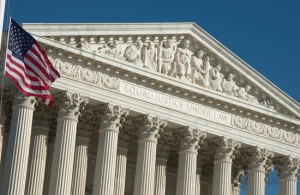 By David G. Savage, Tribune Washington Bureau –
By David G. Savage, Tribune Washington Bureau –
WASHINGTON — A Justice Department lawyer warned the Supreme Court on Tuesday there may be thousands of crack cocaine defendants sentenced to long prison terms under a law that Congress repealed two years ago as racially biased and unfair.
Deputy Solicitor General Michael Dreeben urged the court to tell sentencing judges to use the new law, not the discredited old one, when setting prison terms for those convicted of crack offenses but not yet sentenced when the law was passed.
But by the end of an hourlong argument, it was not clear the Supreme Court would heed the request. Some of the justices said they were not inclined to apply a new law retroactively to crimes that predated it.
Congress passed the Fair Sentencing Act to lower the penalties for selling small amounts of crack cocaine. Under the old law, selling 50 grams, less than 2 ounces, called for a mandatory 10-year term in federal prison. The new law raised the trigger for a 10-year term to 280 grams. President Barack Obama signed the measure on Aug. 3, 2010.
But Congress did not say clearly that its provisions should apply to defendants who were sentenced after August 2010 for crack crimes that took place two or three years before.
Justice Antonin Scalia and Chief Justice John G. Roberts Jr. said the standard rule has been that new provisions do not apply to old crimes, unless Congress says so clearly.
In one case before the court, Edward Dorsey Sr. admitted to selling 5 grams of crack cocaine at a motel in Kankakee, Ill., in 2008. He did not come before a judge for sentencing until September 2010, a month after Obama signed the law. However, the judge applied the old law and sent Dorsey to prison for 10 years for his crack sale and an earlier drug crime.
His appeal argued that under the Fair Sentencing Act, he deserved a much lower sentence.
Justice Sonia Sotomayor said she found it a difficult decision. As a trial judge, she said, she had followed the rule that new laws are not applied to old crimes. However, the crack cocaine law was discriminatory and had to go, she said. “I’ve been a judge for nearly 20 years, and I don’t know that there’s one law that has created more controversy or more discussion about its racial impact than this one,” Sotomayor said.
Justice Anthony Kennedy said he too did not like the idea of requiring judges to sentence defendants to unfairly long terms. “The hardest thing, as we know in the judicial system, is sentencing,” Kennedy said. If a judge is forced to use a repealed and discredited law, “that’s a very difficult position to put the judge in,” he said.
Dreeben, the Justice Department lawyer, said he did not know for sure how many crack cocaine defendants were sentenced after August 2010 for crimes that took place earlier. He said, however, that about 5,000 people a year are sentenced in federal court for crack convictions.








